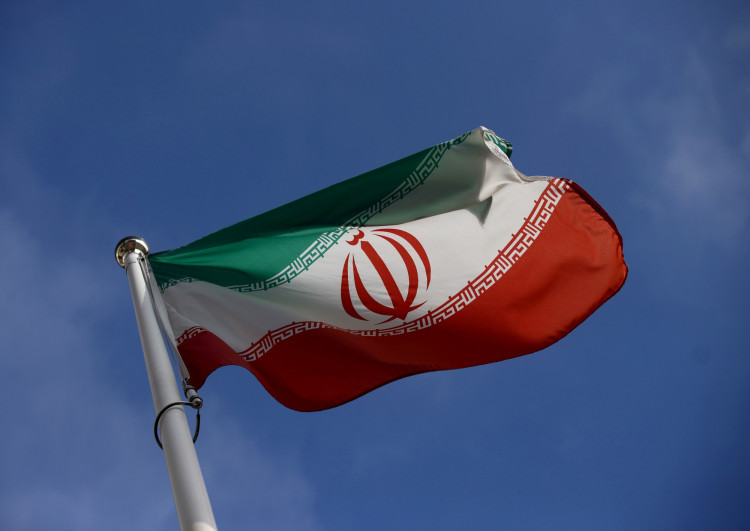Iran has sharply criticized the United States and Ukraine for recent advancements by Syrian rebel forces in a surprise offensive against President Bashar al-Assad's government, according to statements from Iranian officials. The accusations were made amid escalating tensions in the long-standing Syrian civil war, with Iran also announcing plans to bolster its military support for Assad's regime.
On Friday, the Iranian-state affiliated Mehr News Agency reported that Mojtaba Damirchiloo, an aide to Iran's foreign minister, leveled accusations against the U.S. and Ukraine, claiming their actions are undermining regional stability. Damirchiloo condemned "the illegal trade of weapons received from the United States by some Ukrainian officials and Ukraine's support for listed terrorist groups in Syria," asserting that these measures are exacerbating the conflict.
Damirchiloo further criticized the deployment of Takfiri-foreign militant groups-into Syria, stating that their presence is "leading to the destabilization of the West Asia region." He labeled this strategy as an "unethical policy that violates established principles and norms of international law." Highlighting the severity of the situation, Damirchiloo called these actions "a blatant violation of international commitments related to the prevention and combat of terrorism" and demanded their "immediate cessation."
The Iranian official's remarks coincide with significant territorial gains by Syrian insurgents. On Thursday, rebel forces seized control of the central city of Hama after government troops withdrew, marking a notable defeat for Assad. This offensive follows the recent capture of Aleppo, Syria's second-largest city, by opposition fighters, led by the jihadi group Hay'at Tahrir al-Sham (HTS) and the Turkish-backed Syrian National Army.
The swift takeover of these strategic locations has reignited the protracted Syrian civil war, which has been ongoing for over thirteen years. The offensive has been described as the most significant rebel advance in years, posing a substantial challenge to Assad's hold on power.
In response to the rebel advances, Iran has declared its intention to enhance military support for Syria. A senior Iranian official told Reuters on Friday that "It is likely that Tehran will need to send military equipment, missiles and drones to Syria ... Tehran has taken all necessary steps to increase number of its military advisers in Syria and deploy forces." The official, speaking anonymously, emphasized that "Now, Tehran is providing intelligence and satellite support to Syria."
This commitment to support Assad comes as part of Iran's broader strategy to maintain its influence in the region and uphold the "Axis of Resistance" against Israel and U.S. presence in the Middle East. The Iranian official highlighted the importance of Assad as a crucial ally, stating, "Iran and Syria are united in preventing rebels from advancing toward major cities."
Despite the increased military support, the Iranian official noted that "Syria has not yet requested ground forces from Iran," indicating that the current focus remains on intelligence and aerial support. He added, "for now, the decision is for Syria and Russia to intensify airstrikes."
The meeting of foreign ministers from Turkey, Iran, and Russia is scheduled for Saturday in Doha to discuss the ongoing rebel offensive in Syria, according to a Turkish diplomatic source. Iran has urged Turkey, a NATO member and supporter of the Syrian opposition, "not to align itself with the U.S. and Israel," the Iranian official stated. He expressed concerns that Israel and the United States are collaborating to "prevent Iran's allies from regaining strength."
In addition to military reinforcements, Iran is expanding its collaborative efforts with neighboring countries. The Iranian official revealed that "Iran and Iraq are also studying joint defense projects through resistance groups and even regular armies," signaling a deepening of military ties within the region.
The recent advancements by Syrian rebels have been partly attributed to the shifting dynamics of regional power. Russia, a steadfast ally of Assad since its intervention in 2015, has provided "decisive air power to Syrian and Iranian-backed ground forces," according to the U.S. Center for Strategic and International Studies. However, the ongoing conflict between Russia and Ukraine since February 2022 has strained Moscow's capacity, potentially benefiting Ukraine in its own military engagements.
William Freer, a research fellow in national security at the Council on Geostrategy, noted, "Any level of Russian political, economic, or military bandwidth which is diverted from the conflict against Ukraine is beneficial to Ukraine." However, he cautioned that "the impact however will likely be extremely limited," given the Kremlin's prioritization of the war in Ukraine.




